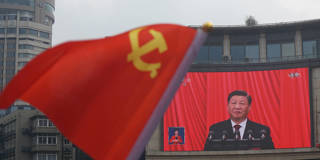Chinese President Xi Jinping seems determined to use his unprecedented third five-year term to reshape international institutions to suit his country’s interests. But the world’s leading powers must cooperate in addressing global challenges like climate change.
MADRID – When Deng Xiaoping came to power in 1978, following the death of Mao Zedong, he outlined a new national strategy that emphasized gradualism, ideological flexibility, and discretion. Deng summarized his doctrine with the dictum: “Hide your strength and bide your time.” In the decades that followed, this approach underpinned China’s transformation into an economic powerhouse, with Deng’s successors focusing on growth and maintained a low international profile. But it is clear that a low-profile foreign policy is not part of Chinese President Xi Jinping’s plan to deliver “the great rejuvenation of the Chinese nation.”

MADRID – When Deng Xiaoping came to power in 1978, following the death of Mao Zedong, he outlined a new national strategy that emphasized gradualism, ideological flexibility, and discretion. Deng summarized his doctrine with the dictum: “Hide your strength and bide your time.” In the decades that followed, this approach underpinned China’s transformation into an economic powerhouse, with Deng’s successors focusing on growth and maintained a low international profile. But it is clear that a low-profile foreign policy is not part of Chinese President Xi Jinping’s plan to deliver “the great rejuvenation of the Chinese nation.”